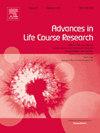Facilitating the recall of biographical data: Alternatives to life history calendars
IF 3.4
2区 社会学
Q1 Medicine
引用次数: 0
Abstract
Reporting life course data is challenging for survey respondents since they need to search their memory for information. Traditional life history calendars where the interviewer guides the respondent through the process are not suitable for web surveys and are not displayable on smaller screens such as smartphones, which are increasingly used to participate in a web survey. Alternative instruments are required that utilize elements of life history calendars to collect life course data in self-administered surveys. To investigate which aspects of life history calendars that are both easy to implement for survey practitioners and easy to utilize for respondents have the potential to enhance the quality of life course data and are perceived as beneficial by respondents, I conducted a short web survey consisting of two waves conducted three months apart covering the respondents' occupational trajectory over the last two years. Herein I experimentally tested two simplified measures derived from life history calendars: (1) the graphical presentation of the time horizon by displaying information in a tabular format and (2) adding temporal bounding cues in terms of information about the respondents’ previous response behavior. The results show that providing the respondents with recall aids such as using a table format when collecting occupational data leads to better data quality compared to using question lists, even if respondents use their smartphones to complete the survey. Displaying information from previous surveys has the potential to help respondents retrieve biographical data but might as well lead to poorer data quality when respondents are not provided with the date of the previous survey.
促进传记数据的回忆:生活史日历的替代品
报告生命历程数据对调查对象来说是具有挑战性的,因为他们需要在记忆中搜索信息。传统的生活史日历,由采访者指导受访者完成整个过程,不适合网络调查,也不能在智能手机等较小的屏幕上显示,而智能手机越来越多地用于参与网络调查。需要利用生活史日历元素的替代工具,在自我管理的调查中收集生命历程数据。为了调查哪些方面的生活史日历易于实施调查从业者和易于使用的受访者有潜力提高生命历程数据的质量,并被受访者认为是有益的,我进行了一个简短的网络调查,包括两波,间隔三个月,涵盖受访者的职业轨迹在过去两年中。在此,我通过实验测试了两种从生活史日历中衍生出来的简化测量方法:(1)通过以表格格式显示信息来图形化地呈现时间范围;(2)根据受访者先前的反应行为信息添加时间边界线索。结果表明,即使受访者使用智能手机完成调查,在收集职业数据时,为受访者提供回忆辅助工具,如使用表格格式,与使用问题列表相比,数据质量更好。显示以前调查的信息有可能帮助被访者检索个人资料,但如果没有向被访者提供以前调查的日期,也可能导致较差的数据质量。
本文章由计算机程序翻译,如有差异,请以英文原文为准。
求助全文
约1分钟内获得全文
求助全文
来源期刊

Advances in Life Course Research
SOCIAL SCIENCES, INTERDISCIPLINARY-
CiteScore
6.10
自引率
2.90%
发文量
41
期刊介绍:
Advances in Life Course Research publishes articles dealing with various aspects of the human life course. Seeing life course research as an essentially interdisciplinary field of study, it invites and welcomes contributions from anthropology, biosocial science, demography, epidemiology and statistics, gerontology, economics, management and organisation science, policy studies, psychology, research methodology and sociology. Original empirical analyses, theoretical contributions, methodological studies and reviews accessible to a broad set of readers are welcome.
 求助内容:
求助内容: 应助结果提醒方式:
应助结果提醒方式:


